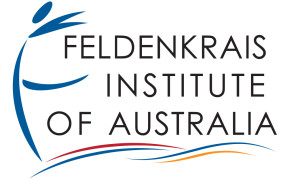Rob Webb – Getting Grounded Gracefully
 The Feldenkrais Method is about learning. One person taking his pursuit of learning beyond known frontiers is Robert Webb.
The Feldenkrais Method is about learning. One person taking his pursuit of learning beyond known frontiers is Robert Webb.
Although he’s gradually scaling the heights of academia, Robert isn’t seeking glory. His end goal is to improve the lives of older people by helping them reduce pain and lead functional lives. He’s doing that by building an important bridge between the Feldenkrais Method and academic research.
As a Feldenkrais practitioner and a social worker in aged care and disability, Robert has spent the last 10 years teaming up with highly esteemed academics. Most recently a research paper co-authored by him reported on the encouraging effects of the Feldenkrais Method on people with osteoarthritis. The study measured the effects of the Method on people aged 55 to 75, who had arthritis in the hip, knee or ankle.
After taking part in 60 Awareness Through Movement lessons over 30 weeks, participants were found to walk with a more upright posture, reducing the load on the back, hips and knees. Feedback from participants included: “You’ve changed my life.”
Robert is now looking for avenues to expand the research into a randomised controlled trial – “the gold standard” of professionally recognised research.
“If we could have arthritis foundations recommending the Feldenkrais Method as an effective management strategy for arthritis sufferers, it could make a huge difference to the use of the method in Australia,” Robert says.
The osteoarthritis research paper, published in the international Journal of Evidence-based Complementary and Alternative Medicine in 2013, followed on from a series of fortuitous and fruitful partnerships in which Robert was integral.
His own back and neck issues led Robert to the Feldenkrais Method. After completing his training in 1997, Robert was working as a case manager at Merri Community Health Service in Melbourne, an organisation that has gone on to support his ground-breaking work. “My manager at the time was interested to see whether my work as a Feldenkrais practitioner could help the people we were dealing with, who were mainly frail, elderly people.”
In 2002, Robert teamed up with the National Ageing Research Institute, which wanted to see if the Feldenkrais Method could improve balance in elderly people. The result was a randomised control trial – meaning participants were split into two groups, one group received the intervention, and the results were compared. The paper was published in a peer-reviewed journal in 2009, and the series of Awareness Through Movements lessons that Robert offered participants in the study developed into his “Getting Grounded Gracefully” series, which has been sold around the world.
“It’s targeting older people who are at risk of falling,” Robert says. “That’s the idea – to improve their balance so they don’t fall, because falling is such a huge problem in the older population. It’s very traumatic and it’s a really costly problem in the community because of the healthcare and hospitalisation involved.”
